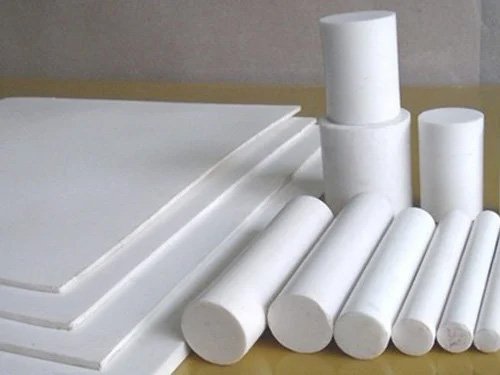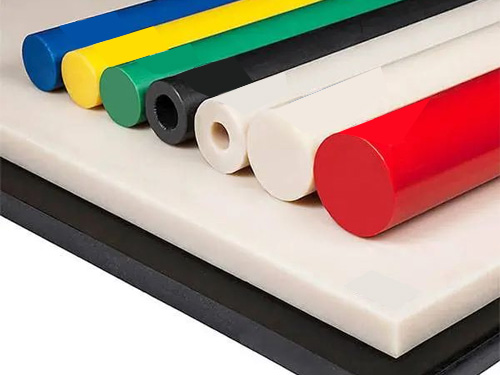

Nylon
Nylon polymers have found significant commercial applications in fabric and fibers (apparel, flooring and rubber reinforcement), in shapes (molded parts for cars, electrical equipment, etc.), and in films (mostly for food packaging).
P P (Polypropylene)
Polypropylene (PP) is a tough, rigid, and crystalline thermoplastic. It is made from propene (or propylene) monomer. PP comes either as homopolymer or as copolymer and can be greatly boosted with additives.
P U (Polyurethane)
Polyurethane is a plastic material, which exists in various forms. It can be tailored to be either rigid or flexible, and is the material of choice for a broad range of end-user applications such as: insulation of refrigerators and freezers. building insulation.
HDPE (High Density Polyethylene)
Polypropylene is made up of the monomer, propylene. PP is a commonly used material for packaging, automotive parts, textiles, and more.
Acrylic
Acrylic polymer is a strong, stiff, and transparent plastic material. Acrylic polymers are available in various colors and finishes. It is frequently used for lighting, electronics screen, automotive components and outdoor glazing in architecture and construction.
ABS (Acrylonitrile butadiene styrene)
ABS or Acrylonitrile butadiene styrene is a common thermoplastic polymer typically used for injection molding applications.
PC (Polycarbonate)
Polycarbonate remains one of the fastest growing engineering plastics. PC finds usage in a host of markets, notably in the automotive, glazing, electronic, business machine, optical media, medical, lighting and appliance markets
PVC (Polyvinyl Chloride)
PVC is used extensively across a broad range of industrial, technical and everyday applications including widespread use in building, transport, packaging, electrical/electronic and healthcare applications.
PTFE (Polytetrafluoroethylene)
In industrial applications, owing to its low friction, PTFE is used for plain bearings, gears, slide plates, seals, gaskets, bushings, and more applications with sliding action of parts, where it outperforms acetal and nylon.
PEEK (Polyether ether ketone)
PEEK is used to fabricate items, including bearings, piston parts, pumps, HPLC columns, compressor plate valves, and cable insulation.
RULON
Rulon include seals, piston rings, bearings, and electrical insulation.
TURCITE (Turcite is a PolyTetraFluoroEthylene)
Most commonly, Turcite® (Lubring) has been used in the machine tool industry where it serves to either replace or reinforce standard phosphor-bronze LM guideways.
UHMW - PE Delrin
UHMW plastic is used in conveyor line components, bearings, guide rails, star wheels, and wear strips.
POM (Polyoxymethylene)
Typical applications for injection-molded POM include high-performance engineering components such as small gear wheels, eyeglass frames, ball bearings, ski bindings, fasteners, gun parts, knife handles, and lock systems.
PET (Polyethylene terephthalate)
polyethylene terephthalate (PET or PETE), a strong, stiff synthetic fibre and resin and a member of the polyester family of polymers. PET is spun into fibres for permanent-press fabrics and blow-molded into disposable beverage bottles.
BAKELITE
It is thermosetting plastic used for making electrical switches and switch boards.
GLASS EPOXY
Epoxy glass is a transparent, hard and brittle substance that is derived from the polymerization of epoxides. It is used as a type of coating on metal surfaces to prevent corrosion.


